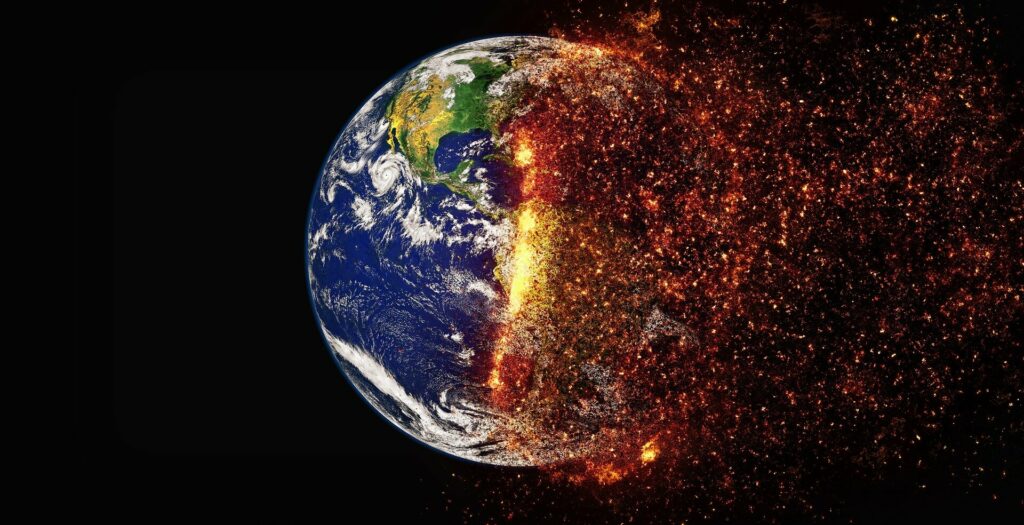Oh yes you will. A big scary headline says the earth is warming faster than settled science said. Actually, not quite: only inside climate models. Science magazine says “New climate models predict a warming surge”. Which might feel like last month’s newspaper, or last decade’s, since current models were already overly sensitive to carbon dioxide, predicting more warming than actually observed in the 20th century. As physicist William van Wijngaarden notes in our latest video, comparing predictions to data would have made for better models. Instead the new generation is running even hotter and the modelers don't know why. So not only is climate too complex to understand directly, the modelers don't understand their models. Can we finally point out that climate science might actually be uncertain?
The story starts “For nearly 40 years, the massive computer models used to simulate global climate have delivered a fairly consistent picture of how fast human carbon emissions might warm the world. But a host of global climate models developed for the United Nations’s next major assessment of global warming, due in 2021, are now showing a puzzling but undeniable trend. They are running hotter than they have in the past. Soon the world could be, too.”
Why would “the world” suddenly start heating faster just because new models run even hotter than previous models that already overstated real-world warming? It seems the modelers and their journalistic acolytes have increasingly little interest in the real world. If the observations don’t fit the model, discard the observations.
Thus the story says the trend “is definitely real. There’s no question,” says Reto Knutti, a climate scientist at ETH Zurich in Switzerland. But it turns out the crucial trend he’s talking about isn’t a trend in temperatures. It’s a trend in model predictions.
To his credit, Knutti went on “Is that realistic or not? At this point, we don’t know.” Well, his partial credit. Because in fact we do know.
In their 2018 study comparing modeled climate sensitivity to levels that would be consistent with observed warming since pre-industrial times, Nic Lewis and Judith Curry showed that the gap is so large, with models projecting too much warming, that "climate models are inconsistent with observed warming during the historical period." That conclusion applied to the so-called "CMIP5" or fifth-generation climate models. The new, 6th-generation models are showing even higher sensitivities, so they too will be shown, in due course, to be inconsistent with observations. But it doesn’t matter.
The trend Knutti is talking about is not temperature, despite that scary “Soon the world could be too.” It’s of models getting ever wackier in the hands of alarmists who treat facts with cavalier disregard and, like junkies, need ever-bigger doses to get the same panicky high.
The Science story charges forward regardless. It says the earlier models predicted “somewhere between 2°C and 4.5°C of warming once the planet came into balance”. Which is true of their more extreme scenarios despite the doesn’t-fit-the-known-facts issue mentioned above. But now “in at least eight of the next-generation models, produced by leading centers in the United States, the United Kingdom, Canada, and France, that “equilibrium climate sensitivity” has come in at 5°C or warmer. Modelers are struggling to identify which of their refinements explain this heightened sensitivity”. What? You made the models and you don’t know how you supercharged them?
Climate models seem to fit the cliché about laws and sausages: It’s not pretty watching how they’re made. The article explains that the National Center for Atmospheric Research in Boulder, Colorado has a new model that runs hot, possibly because they had clouds that weren’t reflective enough so they cranked them up, threw in some aerosols, had the 20th-century warming vanish, and kluged their parameters until it came back, which took them a year. And now, says NCAR modeler Andrew Gettelman, the aerosols might be messing up their clouds. And other people’s. Or not. As exact science, it lacks exactness and arguably science.
This time, we’re happy to report, even alarmists are blowing the whistle. As the Science article concedes, "Many scientists are skeptical, pointing out that past climate changes recorded in ice cores and elsewhere don’t support the high climate sensitivity—nor does the pace of modern warming." And so “the next IPCC report probably won’t lean as heavily on models as past reports did, says Thorsten Mauritsen, a climate scientist at Stockholm University and an IPCC author. It will look to other evidence as well, in particular a large study in preparation that will use ancient climates and observations of recent climate change to constrain sensitivity.” Say, checking models against evidence. What a novel concept. So are they backing down on the model-driven panic?
Heck, no. The article ends “Even so, the model results remain disconcerting, Gettelman says. The planet is already warming faster than humans can cope with, after all. ‘The scary part is these models might be right,’ he says. ‘Because that would be pretty devastating.’”
Actually the scary part is basing policy on models whose own authors can’t explain how they work or why they don’t match reality but insist that even if we’re wrong we’re right anyway. Still, there is some hope here in that inconsistency with real-world data still counts for something in the world of climate science. So they’d better figure out whether it’s “realistic or not” because models that can’t predict the past or explain current observations are just expensive shiny junk.



Observations over 30 Years:
Alarm-Silencing Spring: Data Show March Mean Temperatures Have Not Been Warming Alarmingly As Claimed https://notrickszone.com/2019/04/24/alarm-silencing-spring-data-show-march-mean-temperatures-have-not-been-warming-alarmingly-as-claimed/